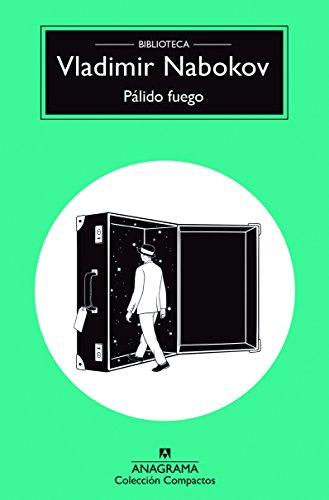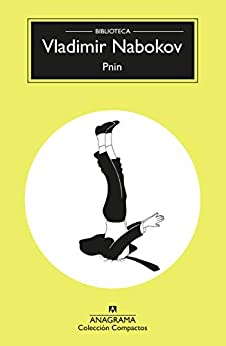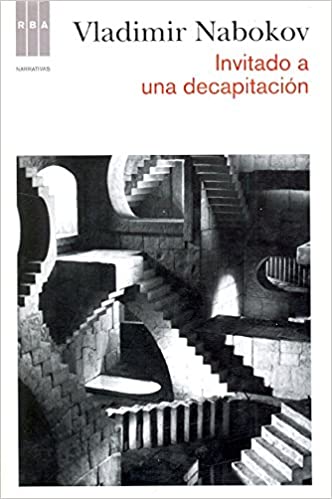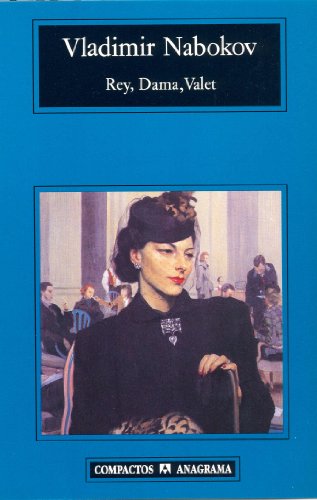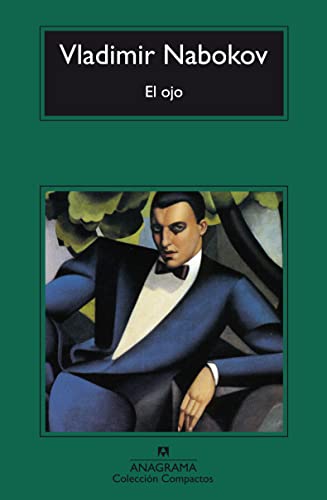What of Nabokov It was already advertised as a comfortable romance with literature given its ease with language. English, French and Russian were languages through which he could navigate with equal reliability. Of course, coming from a good birth it is easier to learn different languages ... But come on, others with the mother tongue are served ...
Nabokov's narrative work is also a varied mosaic that can range from the most transgressive and controversial side to the most candid of proposals. A capacity or an almost artistic intention of the literary, where strong emotions are sought, the impact of the image, the excitement of language as a transmitting cord towards a kind of literary impressionism.
That is why Nabokov never left indifferent. Even less considering his literary production in the middle of a twentieth century still immersed, to a large extent, in immovable moral standards. At least in the upper echelons that still wanted to cut all social patterns.
In his teaching practice, Nabokov must have been that irreverent teacher, like the one in the movie The Club of Dead Poets. And just as he expressed his way of seeing literature in classes or conferences, he ended up building and composing each and every one of his novels.
So a trip between the pages written by Nabokov can be a more or less rewarding experience. But indifference will never be the final note that you can extract.
3 Recommended Novels By Vladimir Nabokov
Lolita
Taking the witness from the Marquis de Sade himself, Nabokov presented this novel that would scandalize and surprise everyone. Can perversion and purity coexist in the same characters? The game of the contradictions of the human being is a perfect argument for any writer who dares to propose a transcendent story in any aspect.
Nabokov dared, took off his own mask, became uninhibited and gave free rein to the most polarized emotions and feelings on the great theme of love ... Perhaps today this novel can be read more naturally, but in 1955 it was an ethical convulsion.
Summary: The story of the obsession of Humbert Humbert, a forty-year-old teacher, by the twelve-year-old Lolita is an extraordinary love novel in which two explosive components intervene: the "perverse" attraction for nymphs and incest.An itinerary through madness and death, which ends in highly stylized violence, narrated, both with self-irony and unbridled lyricism, by Humbert Humbert himself. Lolita is also an acid and visionary portrait of America, suburban horrors, and plastic and motel culture.
In short, a dazzling display of talent and humor by a writer who confessed that he would have loved to film pic-nics of Lewis Carroll.Pale fire
With an unclassifiable structure, this novel brings us closer to the process of literary creation, more aesthetically than in the plot, more in the ability to find images than in the resolution of the narrative knot. An ironic and humorous novel, an invitation to the creative capacity of which we can all show, if we put ourselves to it.
Summary: Pale fire it is presented as the posthumous edition of a long poem written by John Shade, glory of American letters, shortly before he was assassinated. Indeed, the novel consists of the aforementioned poem, plus a prologue, a very voluminous corpus of notes and a commented index of the editor, Professor Charles Kinbote. Before his death, and on the distant kingdom of Zembla, which he had to abandon so hastily, Kinbote traces a hilarious self-portrait, in which he ends up giving himself away as an intolerant and haughty, eccentric and perverse individual, a true and dangerous nut.
In this sense, it could be said that Pálido fuego is also a novel of intrigue, in which the reader is invited to take the role of detective.
pnin
Professor Pnin is perhaps the paradigm of the defeat and exhaustion of the willful man, of the man initiated in the noble art of teaching, until he ends up devoured by nihilism and the sorrowful inertia of nothing to do. connection with his meager students, the heaviness of reality, of that world that no longer rotates under Pnin's feet, harasses him with the determination to show himself inaccessible to him.
The most bitter enemies of the ineffable and unhappy Pnin are the strange contraptions of modernity: cars, electrical appliances and other machines that, at least for him, do not exactly make life easier for him. And also the petty interests and mediocrity of his colleagues, a gang of ambitious little teachers who put his infinite patience to the test. Or the psychiatrists among whom the one who was his wife moves, a woman who never loved him but with whom he remains imperturbable and touchingly in love.So in the end, the ridiculed Pnin emerges as an almost heroic figure, a civilized being in the midst of industrial uncivilization, the only one who still retains a remnant of human dignity.
Nabokov satirises here a world that he, as an emigrant, had to suffer, and seldom is he seen so relaxed, so happy in the very act of writing, so capable of transmitting the pleasure that, despite the regrets, it gave him the simple fact of being alive.Other interesting books by Nabokov…
Invited to a beheading
The absurdity of life, discovered especially in those moments when the curtain is about to fall. Cincinnatus, a condemned man, faced with the reality of the life he has built, the characters that accompanied him are getting closer to him in those last moments. This novel reminds me of the Truman Show, only with a changed perspective. In this case, it is only Cincinnatus who uncovers the falsehood of the world, while those around him continue to play their role ...
Summary: Cincinnatus C. is a young inmate who has been sentenced to death for an unspeakable and unknown crime for which he will be beheaded. Inside his tiny cell, Cincinnatus awaits the moment of his execution as if it were the end of a horrible nightmare.
The constant visits of his jailer, the director of the prison, his daughter, his cell neighbor, the young woman from Cincinnatus and her absurd family only increase the protagonist's feeling of anguish and helplessness, who see how their time is running out, how the time of a theatrical performance with characters that seem to obey the guidelines set by some cruel and playful demiurge ends.The idea of the absurd, the game and the irrationality of the world acquires giant dimensions in Guest to a beheading, a heartbreaking novel, written in 1935.
king, lady, valet
"This fiery animal is the most cheerful of my novels," Nabokov said of "King, Lady, Valet," a satire in which a short-sighted, provincial, prudish, and humorless young man bursts into the cold paradise of a married couple. of newly rich Berliners.
The wife seduces the newcomer and makes him her lover. She shortly after she convinces him to try to eliminate her husband. This is the apparently simple approach of the most classic, perhaps, of the novels written by Nabokov. But, behind this apparent orthodoxy, a remarkable technical complexity is hidden, and, above all, a singular treatment presided over by the tone of farce.
Originally published in Berlin in the late XNUMXs and extensively reworked by Nabokov at the time of its English translation in the late XNUMXs, "King, Lady, Valet" shows a strong influence of German expressionism, especially film , and contains a real waste of black humor. Nabokov bashes his characters, turns them into automatons, laughs at them out loud, caricaturing them with thick strokes that do not, however, prevent them from possessing a plausibility that provides sustained amenity to the entire novel.
The eye
A strange story set in the typical environment of Nabokov's first novels, the closed universe of Russian emigration in pre-Hitler Germany. In the midst of this enlightened and expatriate bourgeoisie, Smurov, the protagonist of the story and a frustrated suicide, is sometimes a Bolshevik spy and other times a hero of the civil war; unluckily in love one day and gay the next.
So, on a mystery novel basis (in which two memorable scenes stand out, excellently Nabokovian: that of the bookseller Weinstock invoking the spirits of Mohammed, Caesar, Pushkin and Lenin, and Smurov's harrowing and suspicious account of his flight from Russia), Nabokov constitutes a narrative that goes much further, because the enigma to be revealed is that of an identity capable of changing color with the same frequency as a chameleon. Orgy of confusion, dance of identities, celebration of the wink, "The Eye" is a disturbing and delightful short novel by Nabokov.


